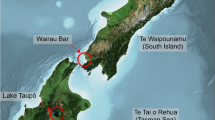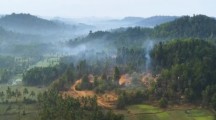Abstract
Cornel West has said that the role of the intellectual is to try to turn easy answers into critical questions and then put those questions to people with power. To whom do public archaeologists address these questions? I am currently involved in an ongoing experiment to use typically nonarchaeological venues to engage with multiple publics about “history matters.” This includes participation in historical societies, commissions, and committees which may have stated aims to discuss, celebrate, and preserve history, but which frequently (sometimes unconsciously) perpetuate and reproduce traditional race/class inequities and power imbalances. My archaeological focus on inner-city African American neighborhoods in Houston, Texas, means that both my research and this larger project take place in settings where insensitive gentrification is impeding grassroots efforts to maintain and reclaim control of historical landscapes and narratives. This article will examine and critique this work, owning mistakes made and (usually small) victories achieved.
Similar content being viewed by others
References
Castaneda, Quetzil E., and Christopher N. Matthews (editors) 2008 Ethnographic Archaeologies: Reflections on Stakeholders and Archaeological Practices. AltaMira Press, Lanham, MD.
Chambers, Erve 2006 Heritage Matters: Heritage, Culture, History, and Cheaspeake Bay. Maryland Sea Grant College, College Park.
Cressey, Pamela 2008 Plenary Session Comments. Paper presented at the 41st Conference on Historical and Underwater Archaeology, Albuquerque, NM.
Derry, Linda, and Maureen Malloy (editors) 2003 Archaeologists and Local Communities: Partners in Exploring the Past. Society forAmericanArchaeology, Washington, DC.
Epperson, Terence W. 2004 Critical Race Theory and theArchaeology ofthe African Diaspora. Historical Archaeology 38(1):101–108.
Feit, Rachel, and Bradford M. Jones 2007 “A Lotta People Have Histories Here …”: History and Archaeology in Houston’s Vanishing Freedman’ Town: Results of Field Investigations at the Gregory-Lincoln/HSPVA 4th Ward Property. Texas Historical Commission, Archeology Report, No. 184. Austin.
Gardyn, Rebecca 2003 Building Board Diversity: Charities Look for Ways to Recruit the Perfect Mix of Trustees. The Chronicle of Philanthropy, 1 December 2003 >http://www.philanthropy.com<. Accessed 15 May 2008.
Jameson, John H., Jr. (editor) 1997 Presenting Archaeology to the Public: Digging for Truths. AltaMira Press, Walnut Creek, CA.
Lightman, Alan 1999 The Role of the Public Intellectual. Paper presented at the MIT Communications Forum, Cambridge, MA, 2 December 1999. Massachusetts Institute of Technology >http://web.mit.edu<. Accessed 15 May 2008.
Little, Barbara 2007 Considering Archaeology in Light of the Global Justice Movement. Paper presented at the Annual Meeting of the American Anthropological Association, Washington, DC.
Little, Barbara (editor) 2002 Public Benefits of Archaeology. University Press of Florida, Gainesville.
Little, Barbara, and Paul Shackel (editors) 2007 Archaeology as a Tool of Civic Engagement. AltaMira Press, Lanham, MD.
McDavid, Carol 1997 Descendants, Decisions, and Power: The Public Interpretation of the Archaeology of the Levi Jordan Plantation. Historical Archaeology 31(3):114–131.
McDavid, Carol 2000 Archaeology as Cultural Critique: Pragmatism and the Archaeology of a Southern United States Plantation. In Philosophy and Archaeological Practice: Perspectives for the 21st Century, Cornelius Holtorf and Håkan Karlsson, editors, pp. 221–240. Bricoleur Press, Lindome, Sweden.
McDavid, Carol 2002a Archaeologies that Hurt; Descendents that Matter: A Pragmatic Approach to Collaboration in the Public Interpretation of African-AmericanArchaeology. World Archaeology 34(2):303–314.
McDavid, Carol 2002b From Real Space to Cyberspace: The Internet and Public Archaeological Practice. Doctoral dissertation, Department of Archaeology, University of Cambridge, Cambridge, UK.
McDavid, Carol 2004 From “Traditional” Archaeology to Public Archaeology to Community Action: The Levi Jordan Plantation Project. In Places in Mind: Archaeology as Applied Anthropology, Paul Shackel and Erve Chambers, editors, pp 67–88. Routledge, New York, NY.
McDavid, Carol 2007 Beyond Strategy and Good Intentions: Archaeology, Race, and White Privilege. In An Archaeology of Civic Engagement and Social Justice, Barbara Little and Paul Shackel, editors, pp. 67–88. AltaMira Press, Lanham, MD.
McDavid, Carol, and David Babson (editors) 1997 In the Realm of Politics: Prospects for Public Participation in African-American Archaeology. Historical Archaeology 33(3).
McDavid, Carol, David Bruner, and Robert Marcom 2008 Urban Archeology and the Pressures of Gentrifica- tion: Claiming, Naming, and Negotiating “Freedom” in Freedmen’s Town, Houston. Bulletin of the Texas Archaeological Society 79:37–52.
Mortensen, Lena, and Julie Hollowell (editors) 2009 Ethnographies and Archaeologies: Iterations of the Past. University of Florida Press, Gainesville.
Sabloff, Jeremy 2008 Archaeology Matters: Action Archaeology in the Modern World, Key Questions in Anthropology. Left Coast Press, Walnut Creek, CA.
Shackel, Paul, and Erve Chambers (editors) 2004 Places in Mind: Archaeology asAppliedAnthropology. Routledge, New York, NY.
Stottman, Jay (editor) 2010 Archaeologists as Activists: Can Archaeologists Change the World? University of Alabama Press, Tuscaloosa.
West, Cornel 1989 The American Invasion of Philosophy: A Genealogy of Pragmatism. University of Wisconsin Press, Madison.
West, Cornel 1993 Keeping Faith: Philosophy and Race in America. Routledge, New York, NY.
Author information
Authors and Affiliations
Rights and permissions
About this article
Cite this article
McDavid, C. From “Public Archaeologist” to “Public Intellectual”: Seeking Engagement Opportunities Outside Traditional Archaeological Arenas. Hist Arch 45, 24–32 (2011). https://doi.org/10.1007/BF03376818
Published:
Issue Date:
DOI: https://doi.org/10.1007/BF03376818




